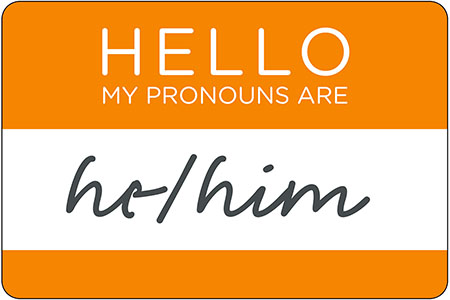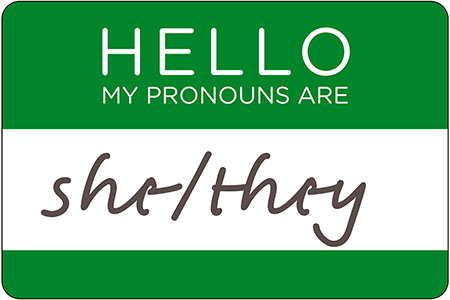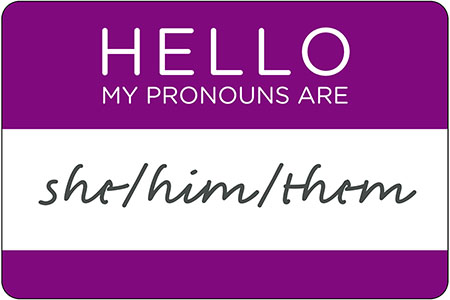 |
| |||
 Spare me from the Pronoun Police In case you thought we’d run out of ways to offend, try figuring out the new etiquette for addressing people. 17-Feb-22 – All people should be “free to be” whoever they wish to be and, within reason, to express their preferences overtly and boldly – as long as it doesn’t present a threat to, or a material imposition on, others. I’m always hopeful that they will exercise a modicum of restraint and a little good judgment in considering the context and circumstances in which they occasionally find themselves and to modestly adjust their behaviors and demonstrations accordingly. And, when they don’t, and insist on making their case in my face, I’ve generally tried to avoid or ignore their displays or to simply go somewhere else. Ignoring them in such cases is usually the best defense. In some instances, though, it’s sadly unavoidable. I hate, for example, to be served in a restaurant by wait persons with metal prongs hanging out of their nostrils. I rarely return to such places and always wonder what kind of moron operates such a “classy” establishment. In my old culinary days, at least in the kitchen itself, any idiot who wore any jewelry might find it promptly ripped from their fingers or ears by the chef. In that context, jewelry wasn’t merely unhygienic and disgusting; it was actually dangerous. That’s pretty much the same reason that it’s always nice to see cooks wearing hairnets, doo rags, or toques to keep their hair from inadvertently mixing with the Welsh rarebit. But these days, it’s apparently insufficient to just go about minding your own business and trying to ignore the constantly changing norms of socially appropriate and PC behavior. To that end, I’ve been reading frightening articles recently about another discouraging advance in the culture wars, another little landmine in the landscape that we now need to carefully navigate. These latest lectures are patronizing and painful explanations by some self-appointed young experts – most likely a member of the working world for at least a few months – who aren’t the slightest bit reluctant to smugly let us know how and where we were coming up short in our social interactions.
Despite the best of intentions, trying to be accommodating and just asking isn’t cool or sufficient anymore. Imagine my surprise and gratitude to learn that it was now incumbent upon us, the “unwoke,” to launch the first steps in the emergent and ever-so-essential pronoun protocols. As in, “Hi, I’m Howard, and my pronouns are he, him, his. What are yours?”
This newly critical concern and the added responsibilities that come with it are intended to assure that we won’t accidentally be perceived as presuming – apparently based on someone’s looks – that he or she or they or whatever had or hadn’t definitely decided or actually not yet made up their mind about their gender and/or their own preferences about how we (the uninitiated) should properly refer to them. So, both asking and guessing are out of fashion and reprehensibly retrograde. Far be it for any of us to make the social gaff of inadvertently referring to them in an improper or insensitive manner or assuming that we knew what their own desires were. Even ESP wouldn’t really help you here because the objective actually isn’t getting to the right answer; it’s the foolish insistence by the PC people that we now should all go through the motions of demonstrating that we’re acknowledging and acquiescing in these folks’ demonstration of, and their insistence on, their differences.
This is complicated stuff, so please pay attention. Although you’re starting to see this latest nuttiness appear on name badges in select retail stores and at certain tree hugger conferences – which actually helps to eliminate some of the pressure of having to ask – this is hardly enough. According to this article, the newly approved and recommended behavior is that the burden is entirely now on us. You need to go first, state and declare your pronouns (be loud and proud while you’re at it) and only then can you ask the “other” what pronouns he, she, or it prefers. In this way, you convincingly demonstrate that you’re remarkably sensitive and that you, too, buy into this new form of identity branding. It sounds like a bad joke and it might be funny if it weren’t such a sad and desperate grasp for attention.
• Contact Howard Tullman at h@g2t3v.com |





